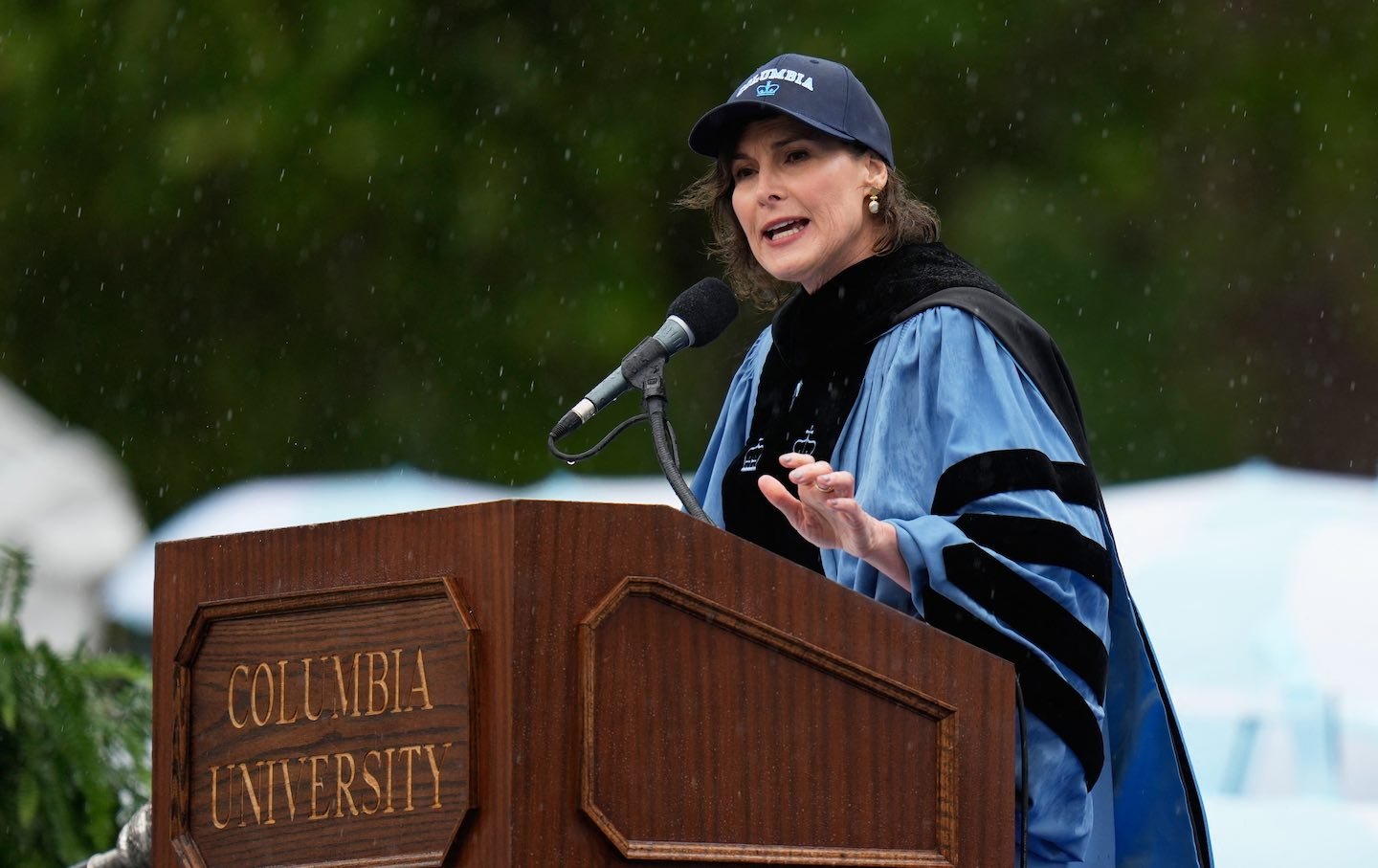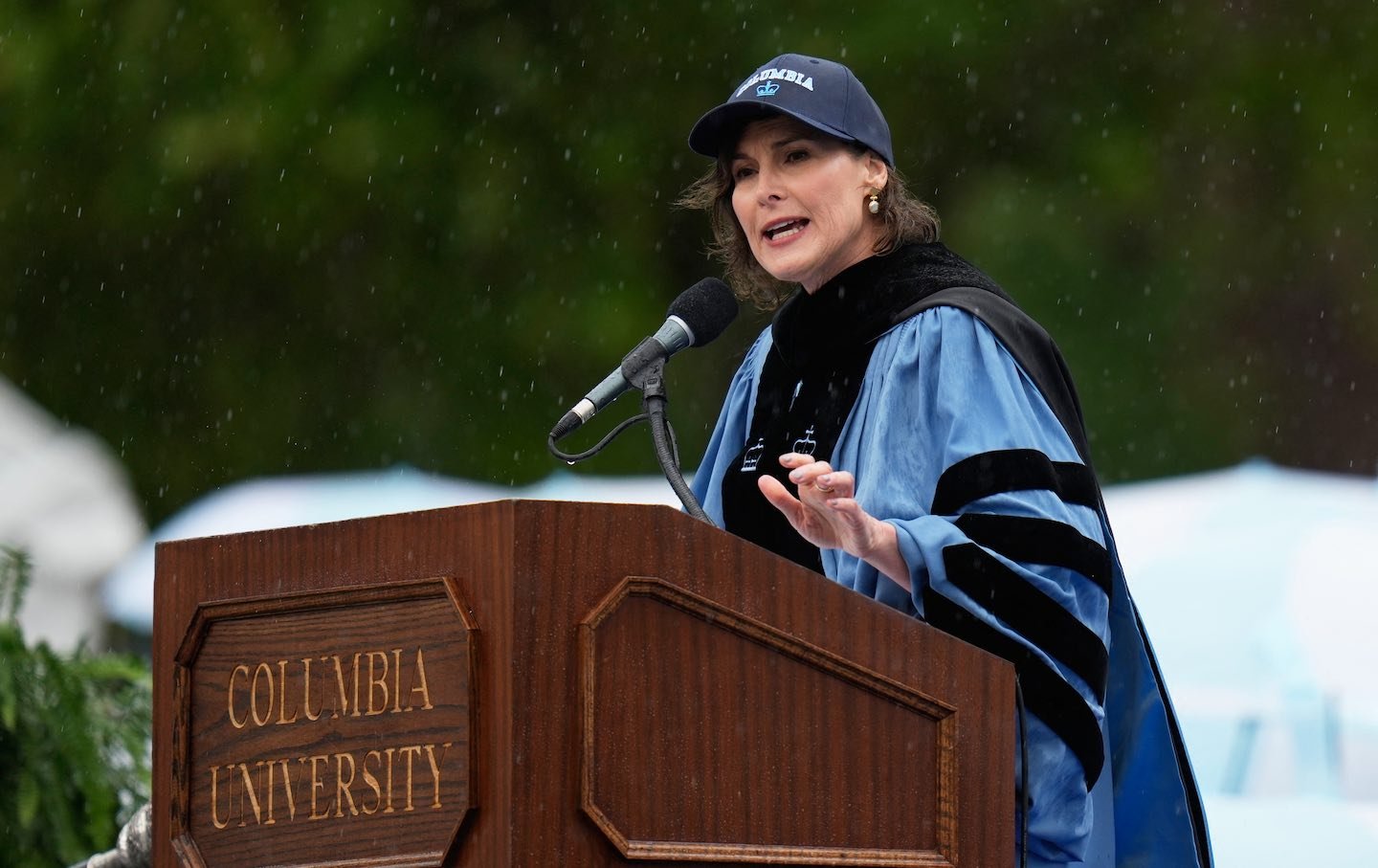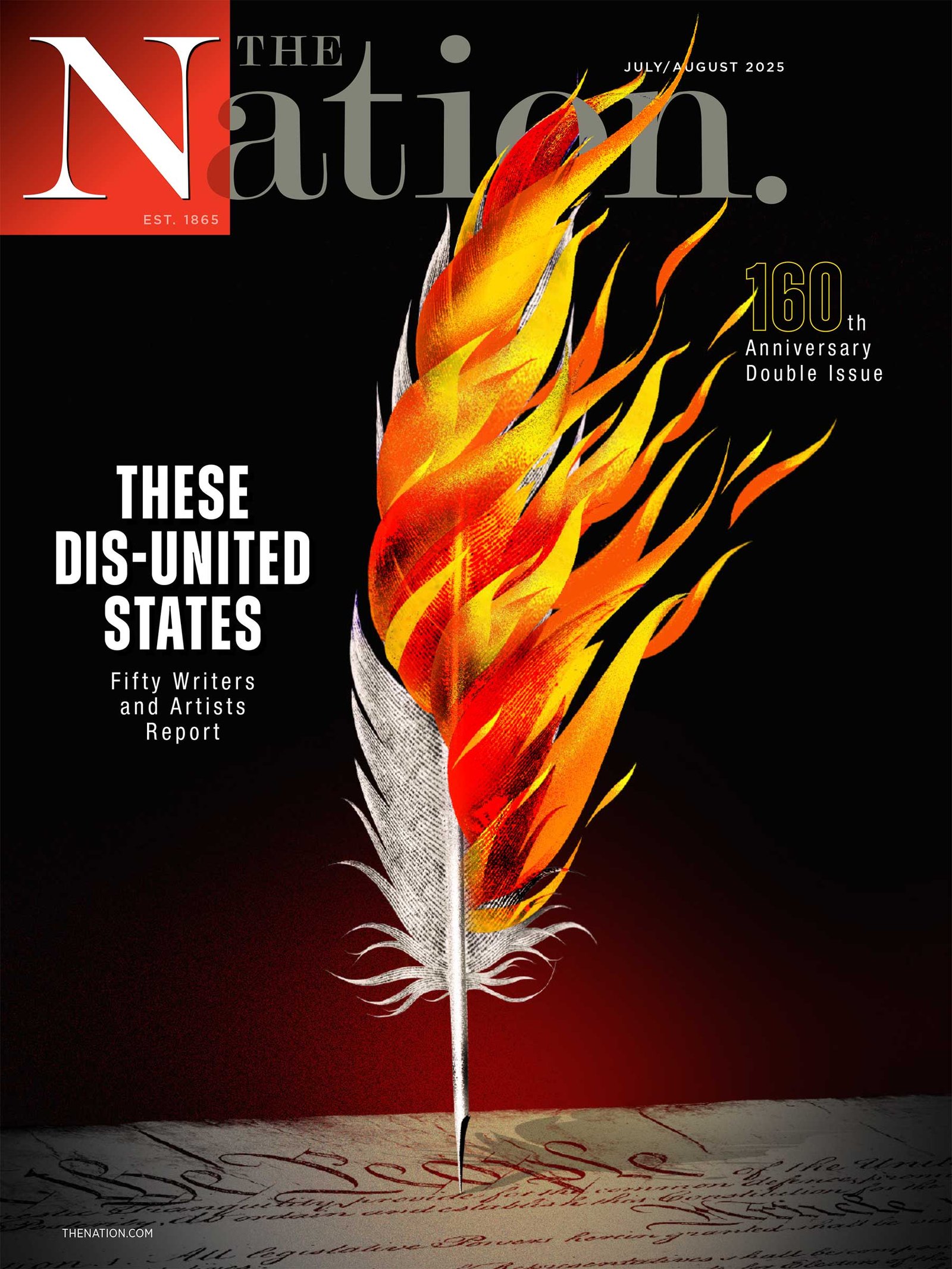The university agreed to a $221 million payout, tacitly conceding spurious right-wing conspiracy theories about higher education.

Claire Shipman speaks during the Commencement Ceremony at Columbia University in New York on May 21, 2025.
(Seth Wenig / POOL / AFP)
Columbia University’s $221 million deal with the Trump administration sets a baleful precedent in the annals of state interference with academic institutions, and their embattled legacies of independent thought. Faced with threatened cuts in federal funding running at more than $1 billion—in addition to $400 million in announced cuts—over the school’s putative DEI excesses and its alleged indulgence of antisemitism in student protests against the Gaza War and in academic curricula, Columbia president Claire Shipman promptly folded.
Shipman—a recent recruit from the Columbia board with the de facto mission of navigating the Trump-led attack on the school—of course didn’t present the deal as anything like the shameful act of appeasement it is. A former national correspondent for ABC’s Good Morning America, she’s a reliable mouthpiece of content-challenged happy talk, and did not miss her mark this time out. “This agreement resolves multiple federal agency investigations and protects Columbia’s academic mission, research enterprise, and independence,” she wrote in a campus-wide e-mail announcing the agreement. “The resolution will allow the University to move forward with clarity and focus—returning our full attention to the work of teaching, discovery, and public service. It will also enable all of us to turn our attention to mending and rebuilding our community.”
There’s every reason to believe, based on the terms of the deal, that the only thing proceeding with focus and clarity is the MAGA takeover of higher education. The agreement creates a mechanism for the ongoing federal review of Columbia’s admissions records, which will be set in motion anytime the school’s new federal overseers pick up the whiff of anything resembling affirmative action.
In establishing a third-party monitoring system for antisemitism on campus, the deal officially formalizes Shipman’s rushed capitulation to the Trump administration’s goon-squad inquisition erected on the pretext of combating the spread of antisemitism in American universities. She had already had Columbia adopt the controversial International Holocaust Remembrance Alliance’s definition of antisemitism, which functionally equates it with criticism, and brought on the Anti-Defamation League, which largely follows the same brief, to lead training sessions on campus about antisemitism. And in a revealing and unprincipled concession on the eve of the agreement, Columbia also expelled and suspended more than 70 student protesters of the Gaza War. At a moment when protest leader Mahmoud Khalil has been returned from the Trump administration’s brutal and unwarranted effort to deport him—and announced his own lawsuit stemming from his detention and rendition—Shipman’s ritual banishment of other anti-war activists signaled to the White House that Columbia will be an eager partner in the many moral panics it will continue throwing together on the fly.
Whatever else you might term this grim litany of state appeasement, it is anything but “the work of teaching, discovery, and public service.” While Shipman was purring through her talking points, Education Secretary Linda McMahon was giving the whole game away in a Fox News interview on the Columbia deal: “This is a monumental victory for conservatives who wanted to do things on these elite campuses for a long time because we had such far left-leaning professors.”
Other college presidents might claim a plausible guilelessness before the White House’s extortion threats. That’s not an option for Shipman, who covered the collapse of the Soviet Union and the anti-government protests in Tiananmen Square. As Columbia Law professor David Pozen argues, the agreement deputizes a new class of super administrators on campus, marshaled from a cluster of federal agencies, to oversee an ominous new institutional innovation—“the first time that antisemitism and DEI have been invoked as the basis for a government-enforced restructuring of a private university,” as well as an unprecedented pay-to-play arrangement mandating “a university to fork over money to the government as a condition of receiving money from the government.” He then observes that the Columbia deal further advances the Trump administration’s mob-like abuse of executive power:
And let’s not forget that the agreement grows out of the executive branch’s first-ever cutoff of congressionally appropriated funds to a university, so as to punish that university and impel it to adopt sweeping reforms, without any pretense of following the congressionally mandated procedures. Lawyers have been debating the exact circumstances under which the executive branch may freeze particular grants and contracts to particular schools. Yet as far as I’m aware, no lawyer outside the government has even attempted to defend the legality of the initial cutoff that brought Columbia to its knees and, thereafter, to the “negotiating” table.
In short, the agreement gives legal form to an extortion scheme—the first of its kind!—that defies the relevant statutes as well as the constitutional separation of powers and the First Amendment.
Trump’s extortion shakedown is also targeting plenty of other campuses, as well as private-sector law firms, sanctuary cities, and any other institution or business that the administration may have designated an enemy du jour. Harvard is suing the administration for its bid to freeze $2.6 billion in federal grants, and Brown has been put on notice that it may lose $510 million in federal funding. Other campuses are also fielding threats from the White House, including Princeton, Cornell, and the University of Pennsylvania. Meanwhile, the House GOP’s Education and Workforce continues holding glorified show trials, seeking to catch university presidents and administrators in the sort of McCarthyite gotcha exchanges that netted resignations from the presidents of Harvard and Penn.
All of this is now Claire Shipman’s legacy. As a university president, she’s a hell of a daytime TV personality.
Chris Lehmann
Chris Lehmann is the DC Bureau chief for The Nation and a contributing editor at The Baffler. He was formerly editor of The Baffler and The New Republic, and is the author, most recently, of The Money Cult: Capitalism, Christianity, and the Unmaking of the American Dream (Melville House, 2016).



